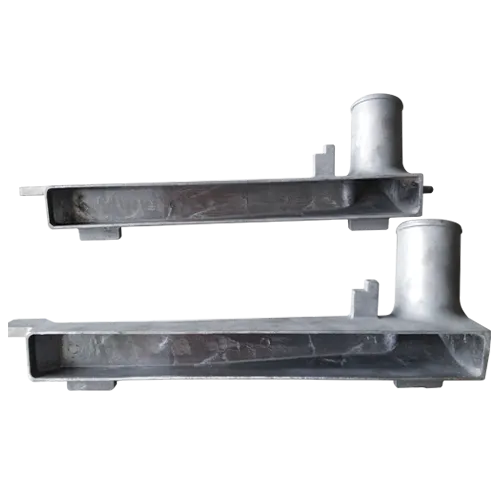Mobile:+86-311-808-126-83
Email:info@ydcastings.com
copper impeller
The Importance of Copper Impellers in Modern Engineering
In the realm of fluid dynamics and mechanical engineering, the choice of materials plays a crucial role in determining the efficiency and performance of various components. Among the many materials used, copper has emerged as a preferred option for the manufacturing of impellers. A copper impeller offers several unique advantages that contribute to its widespread use in industries ranging from aerospace to water treatment.
Superior Thermal Conductivity
One of the standout features of copper is its exceptional thermal conductivity. With a thermal conductivity rating of approximately 400 W/m·K, copper is capable of efficiently transferring heat. This property is particularly valuable in applications where cooling is necessary, such as in turbines or heat exchangers. For instance, in aerospace applications, copper impellers can dissipate heat generated during operation more effectively than those made from materials like aluminum or stainless steel. This reduces the risk of overheating and can enhance the overall performance and longevity of the machinery.
Corrosion Resistance
Copper naturally exhibits a degree of corrosion resistance, particularly in environments with moisture. Its ability to resist oxidation and other forms of corrosion makes it a reliable choice for impellers used in marine applications or in wastewater treatment plants, where exposure to harsh chemicals and saline environments is common. The longevity of copper impellers translates into lower maintenance costs and improved reliability compared to those made from less resistant materials.
Enhanced Strength and Malleability
Copper not only boasts excellent conductivity and corrosion resistance, but it also has a remarkable strength-to-weight ratio. This characteristic allows copper impellers to be designed with intricate geometries that enhance their performance. The malleability of copper enables manufacturers to create complex designs that facilitate better fluid flow and increased efficiency. When compared to materials like plastic or certain alloys, copper impellers can withstand higher stress levels and perform effectively under demanding conditions.
copper impeller

Applications Across Multiple Industries
The versatility of copper impellers allows their application in various fields. In the HVAC industry, copper impellers are used in compressors to enhance refrigerant flow dynamics. Similarly, in automotive applications, they play a vital role in enhancing the efficiency of turbochargers and superchargers. The ability to operate effectively in high-temperature and high-pressure environments makes copper an essential component in the design of advanced propulsion systems in both aeronautics and marine engineering.
Environmental Considerations
In recent years, the environmental impact of manufacturing processes has come under increased scrutiny. Copper is a sustainable material; it is 100% recyclable without losing its properties. This quality enhances its appeal in an era where eco-friendliness and sustainability are paramount. Using copper impellers can significantly reduce the overall carbon footprint of machinery, making them a more attractive option for environmentally conscious engineers and companies.
Future Prospects
As we continue to advance technologically, the demand for high-efficiency pumps and turbines grows. Innovations in the design and production of copper impellers are likely to escalate, fueled by ongoing research into advanced metallurgy and engineering practices. The integration of copper with other materials could lead to hybrid components that enhance performance further while maintaining the benefits of copper.
Conclusion
In summary, copper impellers are more than just a component in fluid machinery; they are a testament to the intersection of material science and engineering innovation. With their unparalleled thermal conductivity, corrosion resistance, and strength, copper impellers are indispensable across various sectors. As industries aim for higher efficiency and sustainability, the role of copper, particularly in the manufacturing of impellers, will undoubtedly remain vital in shaping the future of engineering. The advantages of copper impellers make them a practical choice, catering to the evolving needs of modern technology while promoting an environmentally conscious approach to engineering practices.
-
Understanding Metal Casting TechniquesNewsApr.02,2025
-
Understanding Exhaust Manifolds for Enhanced Engine PerformanceNewsApr.02,2025
-
The World of Metal FabricationNewsApr.02,2025
-
Key Components for Pump and Turbo EfficiencyNewsApr.02,2025
-
Essential Tools for Automotive Maintenance and RepairNewsApr.02,2025
-
Durable Valve Components for Effective Water ManagementNewsApr.02,2025











